 | 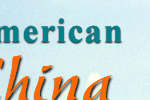 |  |  |
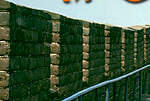 | 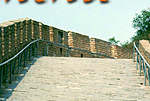 | 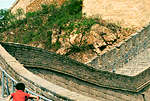 | 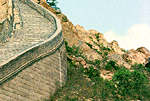 |
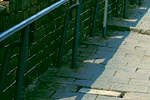 | 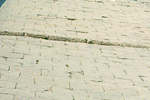 | 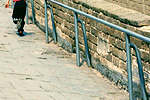 | 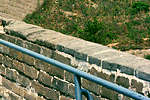 |
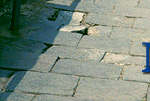 |  |  | 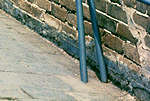 |
|
October 4, 2002 Lamenting Funk Street |
|
Throughout China there exist dirty alleys and streets lined with decrepit old one-story houses harboring strange and amazing odors. A smorgasbord of goods are hawked in these streets underneath the shadows of new apartment buildings and towering Bank of China complexes: full goats, rice and spices, candy and bicycles, condoms and magazines, phone cards – fake ones, full ones and somewhat full-ones, various SOE rejects, produce ... We’ve dubbed these lanes "Funk Streets" and most expats, travelers and teachers know of at least one that has a hot pot spot open all night with a web bar next door. These streets are quaint, despite the refuse and fallen timber, dust and rats. The outhouses give us something to dodge on the rides home and the moon sometime manages to shine through the pollution onto the slick pot-holed streets and we sing to ourselves. We have discovered China so to speak. The inhabitants of Funk Streets across China could be peasants, migrants or just broke city dwellers, but they seem happy enough as they clack mah jiong pieces together and slurp spicy beef noodles. The foreign passerby might even feel the word "idyllic" form on his tongue during a night ride through a dirty smelly alley. Students study by candle-light in the one room that houses the whole family; today’s unsold produce is stacked against the door when night falls; TVs mumble and throw flickering blue light through the many cracks. Old Grandmas grab a squawking chicken and drag it into the back courtyard. How simple! How beautiful! How could a big nose possibly think that the people who live here are content? Are the dreams, ambitions and desires of the poor so easily hidden? Just a little dust and grime, a little generosity on behalf of the old women and a cheery "hello" from the shopkeeper and a foreigner begins dreaming of his very own little shack amidst the splendid squalor of his very own Funk Street. Funk Streets are disappearing under the hammer and crane of China’s modernization drive and the only people complaining are the foreigners who miss the old houses and winding alleys. The smiles that funky alleys bring to our faces are mirrored in the faces of relocated peasants and migrant workers who gladly move all four of their belongings to the skyscraping monstrosity of an apartment complex that the government provides for them. In Chongqing, thousands of people were relocated from "quaint villages" to "modern complexes" and nobody I talked to had a negative word to say about the move. And I was looking for a negative response. I posed all the loaded questions I could to get the response I was sure must be hidden amidst the folds of delicate Chinese discourse. I left disappointed. Millions more are being relocated in the Three Gorges Districts and only the old men and women cry – until they reach the new apartments with modern pig pens devoid of thatch. Millions of yuan are siphoned off into the pockets of officials throughout the affected counties and many villagers are shipped off to dead or dying metropoli like Suining, Sichuan, but just like the ghosts of the students haunting Tiananmen Square, this is but a necessary sacrifice along the path toward Modernity and Greatness. The losses Chinese culture and architecture have sustained due to the Big Dam have been documented and dramatized, but the countless Qing and Ming Dynasty doorways, windows, stone carvings and gates, foundations, temples and random stone inscriptions that disappear with every torn down Funk Street are rarely collected and rarely missed. In Chengdu, a few warehouses contain a few floors with (mostly fake, I’m told) scraps and scavengings, but most of the stone and wood becomes fodder for the skyscrapers. How ironic is it that the foreigners who represent the life so many Chinese want to lead are the only ones lamenting. Many Chinese find it hard to fathom why a traveler will trek into the mountians, cook bad noodles over a small fire and sleep on dirt. Trekkers to the western provinces find peace and tranquility amongst the dirt poor minorities, while the Tibetans, Miao, Naxi and Ge peoples’ thoughts rest predominantly upon the chances of selling clothes or cloth or trinkets or geographical expertise. Of course the happy peasant exists, the man content with his rice paddy and clean air and view of the mountains and valleys. But watch them break down and cry in joy when their son or daughter is accepted into a school in the city, providing chances for the whole family to grasp a piece of the money. We Westerners have walked the path many Chinese long to walk. We must find it wanting in some way, for why else would we leave en masse for the backwaters and Funk Streets of the Third World? And the Chinese tourist industry is beginning to feel the effects of a new disillusioned rich – eager for an escape from the rat race. Mountain climbers are using gear instead of porters these days; skiing is just beginning to gain popularity and what were once escape routes from China for travelers seeking the real manifestation of what has become cliché in the West are now clogged with middle class Chinese seeking the same thing. Meaning? Spirituality? Simplicity? Our own private smelly alley ... The race toward modernization in China is a race every one is taking part in right now. Perhaps because Chinese really don’t know what they’re getting themselves into. Perhaps Chinese culture is solid enough to resist all that comes with the emergence of a content middle class with too much leisure time. A year ago I taught my students as much as I could about American counterculture. About the origins of a movement based on rejecting "modernization" as it has developed in the West. Now, the US has every possible counterculture imaginable – has had them long enough that every expression of rebellion is met immediately with a debilitating storm of clichés. It's passé to retire to the woods, to travel to Europe, to trek through the Himalayas, to meditate with monks. We have searched high and low, uncovered every stone in the quest for ... truth? ... that all those who follow feel they are pretending. Travelers already know the words to say when reaching Tibet by heart – they’ve heard them time and again in cafes and bars along the "beaten path." There’s no way to get off of it anymore. Rebellion, exploration and the quest are packaged up and sold on MTV, in movies, in every magazine, on the Discovery Channel and in every expat bar across the globe. Slowly, I see a counterculture emerging in China. People who listen to Indian music, drink tea out of traditional cups, rent country homes to grow their own weed and crops. For them, this is new, this is an expression of rebellion to that which is being created and destroyed around them. My jaded eyes can’t help but look to the future and glimpse tired expats spitting out clichés and muttering into their beers. The pilgrimage of Western youth to the Other in search of meaning signifies to me the beginning of the end of the reign of the "white man." Will the course of modernization in Asia bring anything new, any new creative thoughts, ideas or contributions to a globalized world? If I look at "Asiatowns" across the globe, it brings me hope that Asian culture, instead of being swallowed by globalized capitalism, will do what it did to the Mongols: reshape, remold. Now, "make the world China" doesn’t seem that appealing, but the Fall of the West from the seat of cultural dominance may hopefully herald a period of globalization that is truly global in nature. Now, China reminds a foreigner of the West 100 years ago (and today): pollution and greed, sweat and blood, inequality and corruption, unchecked construction and demolition. But the emergence of an Asian counterculture which laments the disappearance of Funk Streets as much as we do, but views them from a distinctly Asian viewpoint, as opposed to a distinctly Western one, may give hope to expats, travelers and seekers across the globe that the realists won’t have a free hand to control the course of globalized modernization. -Sascha Matuszak Please Support Antiwar.comSend contributions to Antiwar.com or
Contribute Via our Secure Server Your contributions are now tax-deductible
|
Sascha Matuszak
is a teacher living and working in China. His articles have appeared
in the South China Morning Post, the Minnesota Daily,
and elsewhere. His exclusive Antiwar.com column (usually) appears
Fridays. Archived columns Tiananmen's
Legacy: The Forgotten Rebellion Deciphering
the Chinese Smile Why
China Can Disregard US Anger Arming
the World: What the US Fears 1.3
Billion Problems For China China's
New Post-9/11 Status
Sweep 'Em Off the Streets
Chinese Embrace Progress China's
Afghan Agenda New
War May Reveal New Superpower, Part II New
War May Reveal New Superpower A
Chance for a New Friendship? Cheating
as a Way of Life China's
Internet Generation Free
Markets or Supermarkets Sailing
Towards World Significance China's
Youth Revolution |
